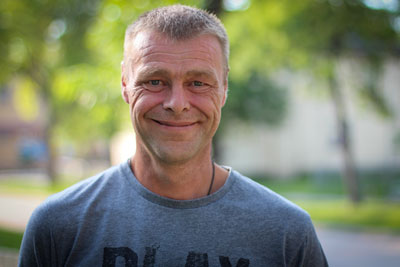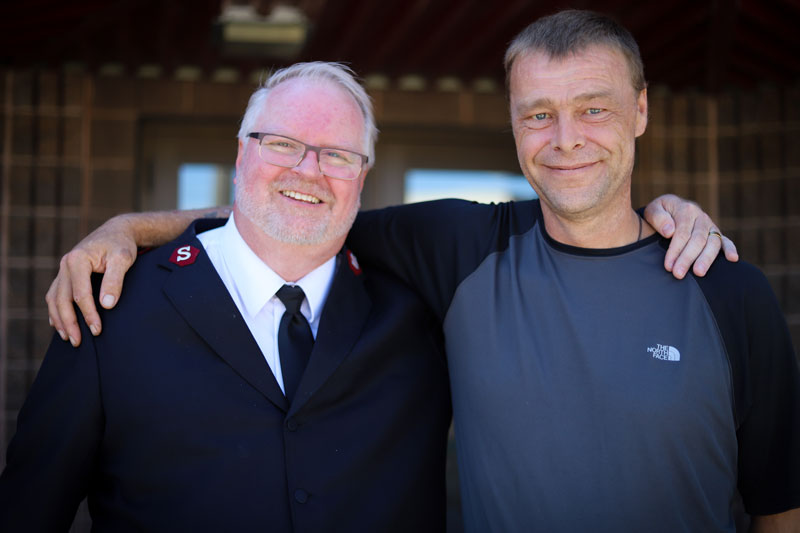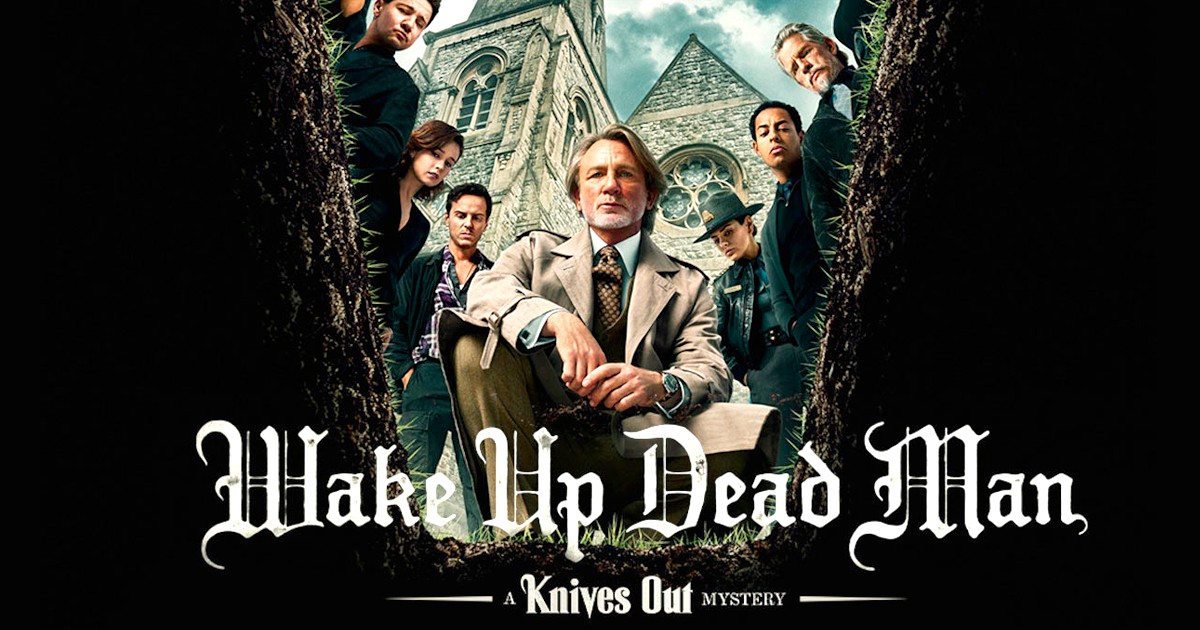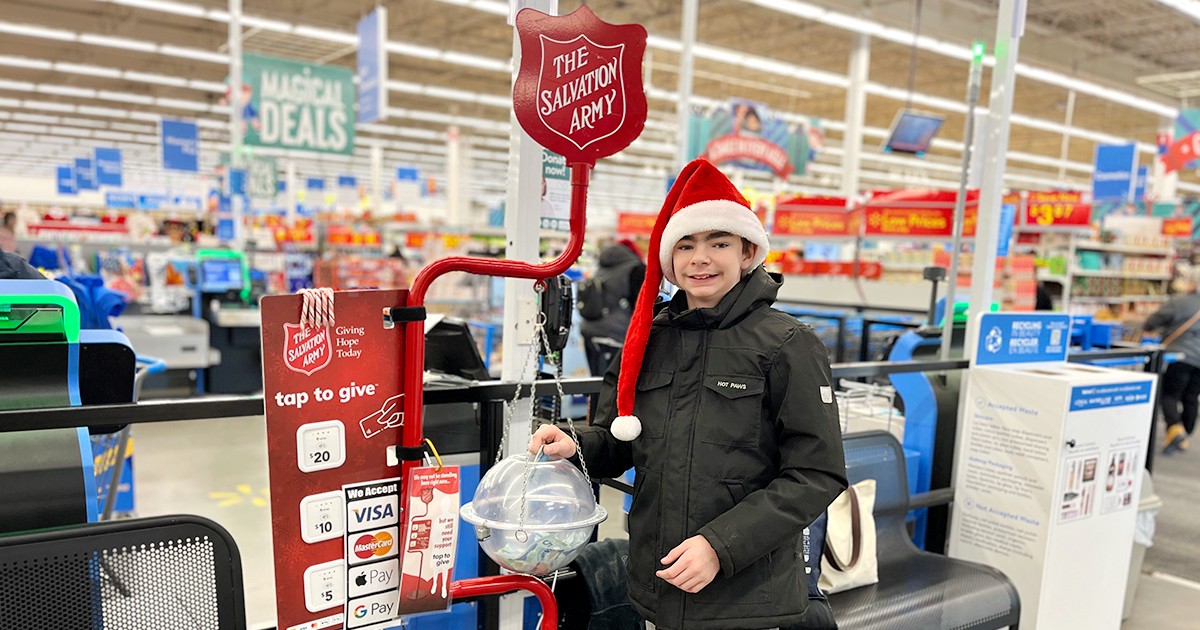“I thought to myself, Just end it right now. All the pain will go away. Everybody who hates you will be happy you’re gone. And I just stood there and waited for a semi.”
It was September 2016, and Conrad had walked to the bridge to put an end to the battle with alcoholism that had been tormenting him for 25 years.
A Truck Drive to Jail
Raised in rural Manitoba, Conrad found out about alcoholism the hard way a couple of days before his 18th birthday, when someone spiked his cola with whiskey at a dance.
He continued to drink unwittingly throughout the night, returned to his dormitory drunk and slept through his final exams the next day, resulting in his expulsion from high school in his senior year.
“And after that, I didn’t stop,” says Conrad, 43.
He worked at a local car dealership before becoming a truck driver when he was 21.
In 1999, he met his wife, Debra, and the two were married in 2000.
Conrad continued to drink heavily, but when his brother-in-law passed away, his drinking problem got worse, ultimately culminating while on the job driving a truck to Minnesota.
“I left Friday night and I was supposed to be there Monday. I had all weekend to go there, and I spent the whole weekend drinking,” Conrad says. “Sunday night, I started driving. I had beer in the fridge and I reached to grab one and the truck veered to the shoulder.
Then I saw flashing lights. My whole sleeper was full of empties; I hadn’t even thrown them out.”
Conrad paid a $15,000 fine and spent a month in jail.
Decision at the Bridge
After his release, Conrad fell back into abusing alcohol, was kicked out of his house and, after his grandfather’s death in 2016, decided to kill himself.
“Just as I was about to jump, I felt a lady grab my arm,” Conrad recalls, tears welling in his eyes. “ ‘You need to come down,’ she told me. ‘You need to come talk to somebody. There’s somebody that wants to talk to you. You need to follow me.’ I don’t know why, but I did.
“I was angry,” Conrad continues. “I yelled at her: ‘Who wants to meet me?’ ”
“You’ve already met Him,” she replied. “He wants you to come back.”
“I turned away from her and looked down the street. When I turned back, she was gone.
“I’ll never forget that moment.”
Meeting Adjourned
The next morning, Conrad went to The Salvation Army’s Weetamah church for the Sunday morning service and to eat. He had been frequenting the building, as had his estranged wife and daughter, Alexia, but would never go inside when he saw his wife’s van parked out front.
 “Don’t ever give up and don’t be ashamed to ask for help,” says Conrad Ginter
“Don’t ever give up and don’t be ashamed to ask for help,” says Conrad Ginter
“You and I need to talk,” the pastor told Conrad. “You’ve been coming here for a month and a half. I know who you are. You’re Alexia’s dad. But you never come when she’s here. In want you here tomorrow morning—but be sober.”
The next morning when Conrad showed up for their meeting, Lieutenant Mark told him something important had come up and he needed to push their meeting to the next morning, but again instructed him to show up sober.
Lieutenant Mark continued to postpone their meeting each day, while Conrad did his best to distract himself from drinking, staying out of his hotel room as much as possible and going for long walks.
After a week of back-and-forth, Conrad began to experience severe withdrawal symptoms, but he went back to Lieutenant Mark one more time.
“How do you feel?” he asked Conrad.
“Right now, I’m pretty mad at you.”
“I believe it. But you’ve been sober for a week. How do you feel?”
“Awful. I’m shaking. I need help.”
“I know you do. I just wanted to make sure you knew you needed help.” With Lieutenant Mark’s assistance, Conrad cleaned out his hotel room and filled out the forms for The Salvation Army’s Winnipeg Booth Centre Anchorage addiction treatment program.
Blind to Love
Conrad began to learn what caused his drinking problem and how to properly process the grief that he had previously numbed with alcohol. He was soon overcome with emotion and asked one of the intake workers he had become close with if he could leave the program.
“He had a supper planned with his family,” Conrad recalls. “Instead, he called them and said, ‘I can’t make it tonight, I’m needed here.’ And he sat with me until eight o’clock at night.”
“Monday morning you can leave,” he told Conrad. “But I want you to write out the pros and cons of leaving and staying. What’s your life going to be like if you leave Monday morning? What’s your life going to be like if you stay? You really need to think. Are you going to be alive a year from now if you leave?”
“That’s one of the many ways that Anchorage saved my life,” recalls Conrad.
He stayed and completed the three-month program and moved into a sober living facility after he graduated. He’s been sober for nearly two years.
“God came to me that night on the bridge. I know it was Him,” Conrad says. “I was ashamed. And the more guilt I had, the more shame I had, the more I drank. I thought nobody loved me anymore, and I thought ending my life would be the answer. It turned out that I was the one who was blind to the love. Everybody wanted to help me and I was just turning them away.
“Don’t ever give up and don’t be ashamed to ask for help."
If you or someone you know is struggling with substance abuse or addiction, contact the Salvation Army church or facility nearest you.










Comment
On Wednesday, June 3, 2020, louis rothwax said:
Leave a Comment